



NATIONAL EXECUTIVE OFFICERS



























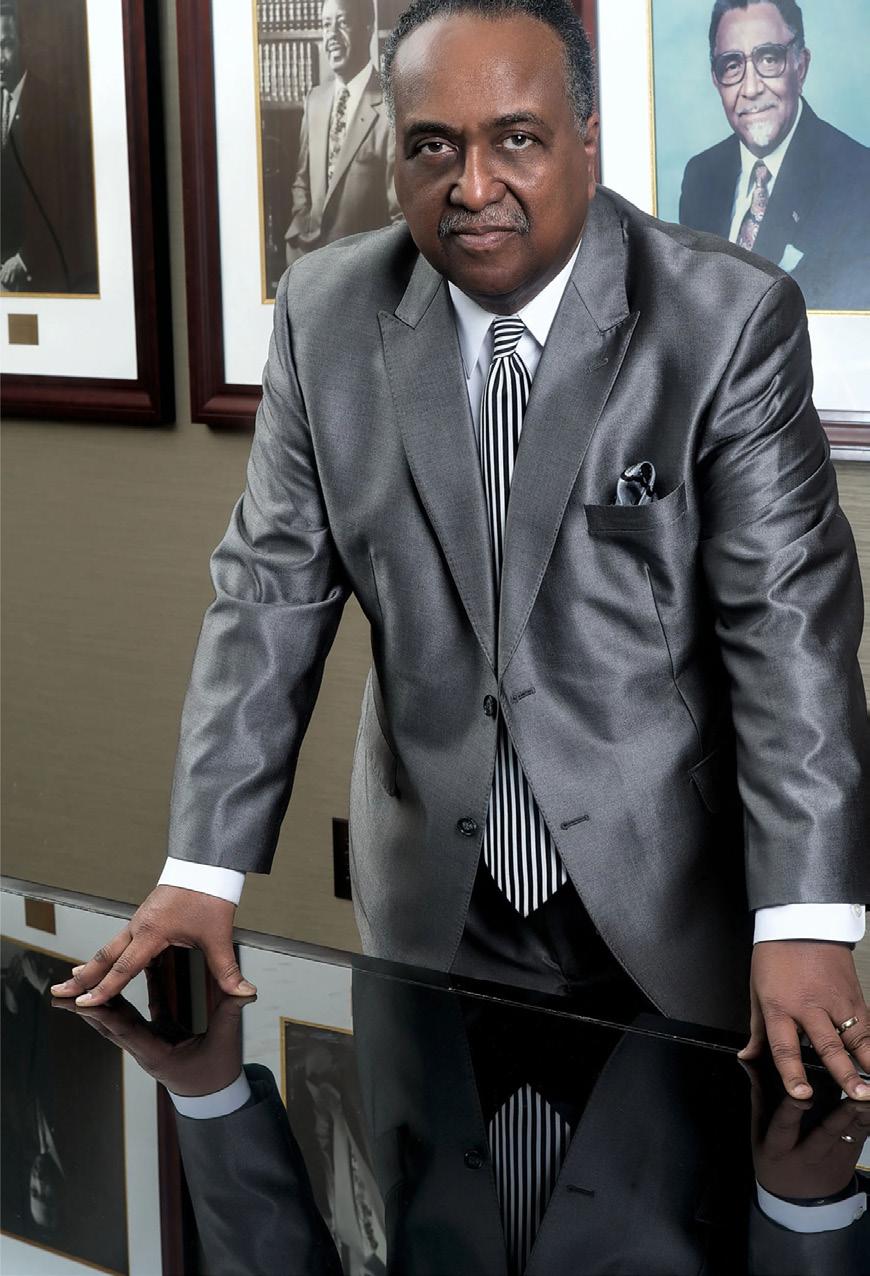
In the archives of civil rights history, few organizations have left an undeniable permanent mark of peace as the Southern Christian Leadership Conference (SCLC). Founded in 1957 by Dr. Martin Luther King Jr., along with other prominent leaders, the SCLC played a pivotal role in the struggle for racial equality during the turbulent decades of the 20th century. But as we embark on the fourth month of the year 2024, the relevance and importance of the SCLC persist, resonating in our ongoing quest for justice, equality, and human dignity
SCLC is a beacon of hope for people all over the world. For generations, it has stood for an expectation of hope and resilience in the face of oppression. From the Montgomery Bus Boycott to the March on Washington, the organization spearheaded some of the most iconic moments of the civil rights movement, mobilizing masses and galvanizing support for the cause of racial justice.
But the SCLC’s impact extends far beyond its historic victories. Its commitment to nonviolent resistance and civil disobedience has served as a model for social movements around the world, inspiring countless individuals to stand up against injustice and oppression. Even today, its legacy continues to inspire activists and organizers in their fight for equality and human rights.
While the SCLC’s origins may lie in the struggles of the past, its mission remains as relevant as ever in the present day. In 2024, the fight for civil rights continues on multiple fronts, with issues of racial inequality, voter suppression, and police brutality persisting in communities across the country. Freedom is not free and it will never be free. We must continue to fight the good fight each and every day. We must pick up our cross daily. It is imperative that we help one another in our fight for justice and equality. As a Christian
organization we must pray for each other, encourage each other and stand up for what is right. The SCLC works hard at adapting to these present-day challenges, leveraging its organizational expertise and grassroots networks to address systemic injustices. Through initiatives focused on voter education and registration, community organizing, and advocacy for police reform, the organization remains at the forefront of efforts to combat racial discrimination and promote social change.
One of the SCLC’s enduring strengths lies in its ability to build coalitions and foster unity among diverse groups and communities. In an era marked by political polarization and social division, the organization’s emphasis on solidarity and collective action offers a powerful antidote to the forces of discord and mistrust.
Every year at the SCLC convention, the SCLC looks to bring together individuals from different backgrounds and walks of life, the SCLC creates a space for dialogue, collaboration, and mutual understanding. In doing so, it not only amplifies the voices of the marginalized but also builds bridges across divides, laying the groundwork for a more inclusive and equitable society. This year is no different as we look to convene in the hometown of the SCLC in Atlanta, Georgia.
As we reflect on the importance of the Southern Christian Leadership Conference in 2024, it’s clear that its work is far from finished. While significant progress has been made in the struggle for civil rights, the journey toward justice and equality is ongoing, with new challenges and obstacles emerging on the horizon.
In the years ahead, the SCLC will continue to play a vital role in advancing the cause of social justice and empowering communities to create positive change. Its commitment to Dr. King’s vision of a beloved community – one characterized by love, understanding, and mutual respect – remains as relevant and necessary as ever in our increasingly interconnected and diverse world.
This year as we honor the legacy of the SCLC and its tireless efforts in the pursuit of freedom and equality, let us recommit ourselves to the work of building a society where all individuals are treated with dignity and respect. In the words of Dr. King, “The time is always right to do what is right.”

March 1, 2024 people from throughout the South celebrated the 56th Anniversary of the Selma to Montgomery March. Unfortunately, many of our youth do not understand the history of this important event. Recently a young student asked me this question, why was the march celebrated each year? I find it difficult to understand why the history of African-Americans are not taught in our classrooms. However, I explained that marches were organized to protest the blocking of African Americans right to vote by the racist structure of Jim Crow laws in the South.
I explained to her that Jim Crow laws mandated racial segregation in public facilities in our Southern States which were former Confederate States of America. I also explained that after the murder of Jimmy Lee Jackson, the surrounding communities decided to protest his murder by Alabama State troopers by marching from Selma to Montgomery. These protests reached beyond the Southern States. In 1965 the Voting Rights Act was signed into law by President Lyndon B. Johnson. The Voting Rights Act prohibited states from imposing practices denying the right to vote on account of race and permitted federal intervention in the electoral process and required preclearance of new laws.
Unfortunately, there are threats to the Voting Rights Act of 1965. There are many who no longer believe that the Act is necessary and on June 25th, 2013, the United States Supreme Court held that it is unconstitutional to use the coverage formula in Section 4(b) of the Voting Rights Act to determine which jurisdictions are subject to preclearance requirement of Section 5 of the Voting Rights Act. The Court held that section 4(b) exceeded Congress’ power to enforce the Fourteenth and Fifteenth Amendments.
I interviewed a few African Americans to get their view of the Supreme Courts action. My survey showed that many African American voters believe that there are many barriers facing registering in some southern states such as names being removed from the voting roles, voter ID laws, gerrymandering, lack of access to polling places and voting by mail.
Therefore, you may ask why is the annual Selma to Montgomery March still important. I believe that if we forget history we can find our ourselves repeating it. We are not assured that our that our acquired gains will always be there. We must remember the pass in order to avoid repeating it.
We congratulate the SCLC’s efforts to improve world peace and equality for all. www.fnf.com

To address root causes of disparities in health and education, Novartis and the Novartis US Foundation have launched Beacon of Hope, an innovative ten-year, $50 million collaboration with 26 Historically Black Colleges and Universities, and the National Medical Association and Thurgood Marshall College Fund.
For more information, please visit: https://www.novartis.com/us-en/esg/beacon-hope
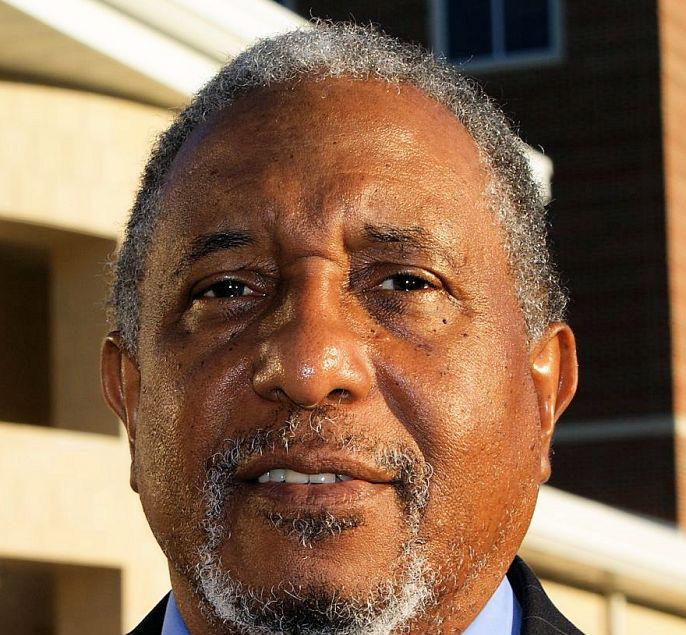
As I look back on the Selma Movement fifty nine years ago this March, I am compelled to reflect on the immense value of not giving up. As one of the architects of the historic and now, contemporary nonviolence movements, I know that it’s incumbent upon us to remain steadfast in light of daunting obstacles. It’s imperative that we continue to, speak up, get up, turn up and throw the weight of our souls into working for justice.
With the presidential 2024 election drawing near, and the ongoing undermining of basic voting rights, I urge everyone everywhere to step out and assert your voting power. Our vote determines how we allow ourselves to be governed. And as my friend and mentor, the late, great Amelia Boynton Robinson said “ A voteless people is a hopeless people”
Here is an excerpt from my book In Peace and Freedom My Journey to Selma, co-authored by Kathryn Lee Johnson.
On June 12, 1963, there was a planned attempt to assassinate Benjamin Elton Cox in Louisiana, Medgar Evers in Mississippi, and me in Alabama. We were civil rights leaders in three different states. That night we were all three slated for attack at approximately the same time, with intent to kill. This was later referred to as the tri-state conspiracy.
I had just returned from a mass meeting and pulled into my driveway. I saw a pink and white Chevrolet, parked across the street from my house. There were two white guys, one at the steering wheel and one looking under the hood.
The night was dark; a large tree shaded one streetlight, casting gray shadows. As I was getting papers out of the back seat of my 2 door Chevy, I suddenly heard leaves crackling behind me.
My immediate thought was “oh no, I’m going to be attacked” I spun around to face my opponent as I had been trained to do. A huge fellow was approaching me. He towered over me.
He said, “Buddy how much would you charge for a push?” I was relieved to hear that he only wanted a push because I thought he wanted my life. I told him I wouldn’t charge anything, that I’d help him get out. We learn in life that it is important to give each person the benefit of the doubt and not to judge a person based on differences. It is also important to be prepared for those who would seek to do you bodily harm.
I got back into my car and pulled up behind his, ready to give him a push. The man closed the hood and then had a long conversation with the driver. Impatient, I wondered what the problem was. I was anxious to get this over. Finally, he came over to my car, looked at the bumpers, then hesitated. I asked if the bumpers matched okay and he said “ Maybe you’d better come out and take a look.” It seemed odd, but I got out and bent over to check the bumpers.
Suddenly a crushing blow to my head sent me flying to the pavement, flat out. I still recall every detail of the next few minutes. I jumped back quickly and faced him because that is the nonviolent way to respond so your adversary does not succeed in his attack. The second blow was equally devastating as a blunt instrument cracked my head and sent me straight back to the pavement in the middle of the street. He pounded me with the butt of a pistol, metal against bone. By sheer will I staggered up again, trying to look him in the eye. The third time he came down on top of my head with steel, knocking me down again. My eyes filled with blood and he became a blurry vision.
Then I saw the gun. When the muzzle’s black hole pointed straight at my head, I shouted for my neighbor, “Red” who lived above me. Even in the midst of this attack I knew it was important for someone to witness what was happening. Red dashed across the porch, leaped over the banister, and took aim with his rifle. I hollered, “Don’t shoot him Red!” and stood between the two with my arms outstretched. By this time the guy had jumped into his car and was screeching off. Mrs. Boynton rushed me to the hospital. Dr. Dinkins, son of William Dinkins, patched me up with seven stiches. How I survived, I don’t know. I was very lucky that night.
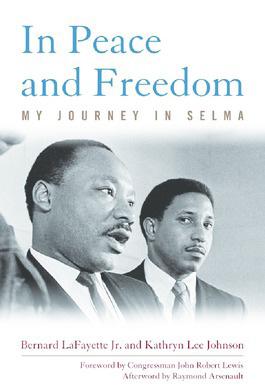
During the vicious attack I had a warm feeling under my skin that came over me from my head and traveled down my entire body. I believe that it was a spiritual empowerment that allowed me to feel an extraordinary sense of internal strength instead of fear. I felt an intense force that seemed to lift me up emotionally, even though I didn’t know what would happen next. It was a surrendering of life, in a sense, and I was prepared. I view it as a form of resistance, with support from a higher power beyond myself.
In the heart of the South, where the pulse of economic growth and cultural dynamism beats steadily, lies a city teetering on the edge of a housing crisis. Atlanta, Georgia, often hailed as a beacon of progress and opportunity, paradoxically stands as a glaring proxy for the national struggle with affordable housing. As rental prices soar to exorbitant heights, and the dream of homeownership slips further out of reach for many hardworking Atlantans, the city grapples with a reality that echoes across the nation.

According to recent data from the Atlanta Federal Reserve, the city's rental market has reached staggering levels of unaffordability, with median rents surpassing national averages by a significant margin. Families and individuals alike find themselves burdened by the relentless rise in housing costs, a burden that threatens to suffocate aspirations and perpetuate cycles of poverty.
One striking facet of Atlanta's housing landscape is the dominance of three companies that collectively own a staggering 19,000 homes across the city. This concentration of ownership not only consolidates power but also exacerbates the challenges faced by those seeking affordable housing options. With limited choices and increased competition, tenants often find themselves at the mercy of corporate landlords, subject to arbitrary rent hikes and inadequate maintenance standards.
Dr. Charles Steele, Jr., a stalwart advocate for social justice and the President/CEO of the Southern Christian Leadership Conference (SCLC), has long been a vocal proponent for addressing the housing crisis in Atlanta. Under his leadership, the SCLC has tirelessly campaigned for equitable housing policies, recognizing the fundamental role that stable housing plays in fostering community well-being and economic mobility.
Dr. Steele underscores the harsh reality faced by many Atlantans, particularly those from marginalized communities. "It's a travesty," he asserts, "that the working poor, already grappling with low wages and long hours, are further burdened by the exorbitant cost
in its mission to build strong communities and promote social, economic and political justice
of housing." For individuals and families struggling to make ends meet, the prospect of allocating an ever-increasing percentage of their income towards rent represents not just a financial strain but a barrier to accessing basic necessities and opportunities for advancement.
The call to action issued by Dr. Steele and the SCLC resonates deeply in a city where the juxtaposition of prosperity and poverty is starkly evident. Beyond mere rhetoric, they demand tangible policy interventions at every level of governance, urging political leaders to prioritize affordable housing as a matter of urgent public interest.
At the federal level, initiatives such as increased funding for affordable housing programs and the expansion of housing vouchers are essential steps towards addressing the systemic inequities that plague Atlanta and communities nationwide. State and municipal governments must also play a pivotal role, implementing robust tenant protections, incentivizing affordable housing development, and combatting the predatory practices of corporate landlords.


Yet, amidst the dire statistics and impassioned pleas for change, there remains a glimmer of hope. Grassroots movements and community organizations have emerged as beacons of resilience, advocating for housing justice and empowering residents to assert their rights. From tenant unions to housing cooperatives, these grassroots efforts embody the spirit of collective action and solidarity, challenging the status quo and envisioning a future where housing is truly a human right.

As Atlanta stands at the crossroads of opportunity and adversity, the urgency of addressing the housing crisis has never been more apparent. The city's fate serves as a microcosm of a national epidemic, a sobering reminder of the profound inequities that persist in our society. In the words of Dr. Charles Steele, Jr., "We cannot afford to turn a blind eye to the suffering of our fellow citizens. Affordable housing is not just a policy issue—it's a moral imperative."
In the face of daunting challenges, the resilience of the human spirit shines brightest. Atlanta's journey towards housing equity may be fraught with obstacles, but it is a journey worth undertaking—a journey towards a future where every individual, regardless of background or circumstance, has a place to call home. As the city grapples with its present realities and charts a course for the future, one thing remains clear: the fight for affordable housing is far from over, but with determination and solidarity, victory is within reach.
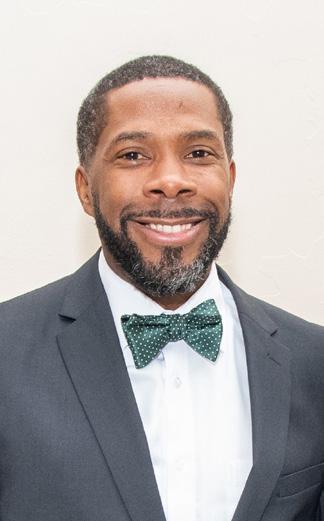
DeMark Liggins is a proud alum of Alabama State University, a member of Kappa Alpha Psi Fraternity and involved in several civic organizations in the Atlanta area. He is married to his wife Atoya and they have three children, Reagan (15), Darden (9) and Deuce (9).


we commemorate the 56th anniversary of Dr. Martin Luther Kin sassination, it is my hope that we can inspire the next generatio mit themselves to continuing his legacy of advocacy for true equ justice, and freedom for all.”


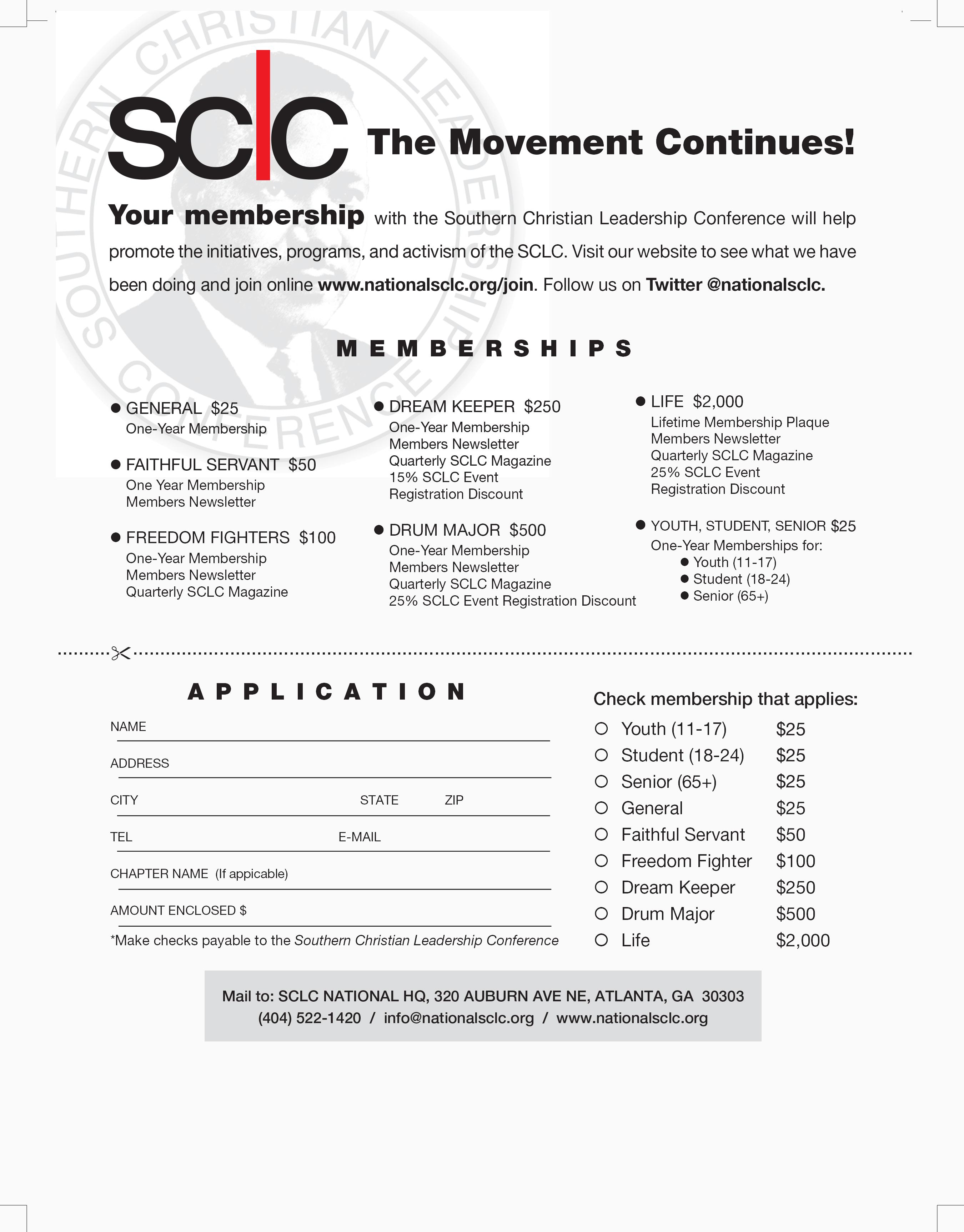
Ray Dalio's recent assertion that the US faces a budget crisis is a stark wake-up call, echoing the grim assessments of credit rating agencies. However, a critical aspect often omitted from these discussions is the nature of this crisis: it's not a spending issue; it's a revenue shortfall. Decades of aggressive tax-cutting have left the United States struggling to generate sufficient funds to meet its necessary expenses.
Our analysis of the US budget reveals a grim reality: there simply is not $1.5 trillion in cuts to be made without crippling essential services. Furthermore, rising climate-related disasters will require an additional $300 billion to address these events' increasing frequency and severity.
The turmoil within factions like the Tea Party and Freedom Caucus underscores this dilemma. They can't reach a consensus on significant spending cuts—and for good reason. Proposals to slash Social Security and Medicare are politically and socially untenable. Similarly, defense spending, which constitutes a substantial portion of the budget, is untouchable. This accounts for $3 trillion that can't be touched, leaving these groups at an impasse.


The solution, then, lies not in reducing expenditures but in increasing revenue. It begs the question: why are we not taxing passive income at the same rate as earned income? Why not revert to the tax rates of the Clinton era? Consider the Opportunity Zone tax rules, which have cost the government an estimated $2 trillion in lost revenues. It's time to acknowledge that those at the top of the wealth spectrum, the billionaires, can indeed afford to contribute more and should. Adopting these measures would not only be a step toward fiscal responsibility but also a move toward greater economic equity. By
recalibrating our tax policies to ensure a fair contribution from all, especially the wealthiest, we can steer the country back onto a path of financial stability and sustainable growth.
This isn't merely a financial strategy; it's a moral imperative. To safeguard the future of our nation, we must embrace a more balanced and equitable approach to fiscal policy. The crisis we face is not just a matter of numbers on a spreadsheet; it's about the kind of society we want to live in and the legacy we wish to leave for future generations.
In conclusion, Ray Dalio's commentary on the budget crisis is a clarion call for a fundamental shift in our approach to fiscal policy. The time for half-measures and political posturing is over. It's time to address the root cause of our financial woes: a revenue problem that can only be solved by courageous, equitable, and forward-thinking tax reforms.
Kevin B. Kimble, Esq. Financial Services Innovation Coalition
Kevin B. Kimble, Esq. – Executive Director, Southern Christian Leadership Global Policy Initiative (SCL-GPI)
Mr. Kimble is a 30-year veteran of Capital Hill and has held positions as chief of staff for a senior member of Congress and chief lobbyist for one of the nation’s largest financial services firms. As the Founder of FSIC his advocacy and programmatic work has given him unparalleled access to minority communities and civic leaders around the country. He is routinely called upon and advises members of Congress on policy and legislative issues and has been asked to speak to state and local governments and testify at hearings.
G. Michael Flores, Bretton Woods, Inc.
G. Michael Flores, CEO of Bretton Woods, Inc., is a member of the Financial Services Innovation Coalition (FSIC) Advisory Board and a consultant and researcher who has studied financial services companies and consumer credit in general for close to 40 years. He has written and published research papers on consumer credit in the United States and the United Kingdom, as well as papers on payments, including general-purpose reloadable and payroll prepaid cards. He is also a faculty member with Pacific Coast Banking School at the University of Washington in Seattle.
We join the SCLC in honoring the memory of Dr. Martin Luther King, Jr.
We fully support equal opportunity for all, regardless of race, creed, sex, age, sexual orientation, disability, or ethnic background.


As we approach the solemn anniversary of April 4th, 1968, our minds turn inevitably to the towering figure of Dr. Martin Luther King Jr., whose life was tragically cut short by an assassin’s bullet. For African Americans, this date holds profound significance—a reminder of both the progress made and the long road that still lies ahead in the fight for equality and justice.
Dr. King’s assassination shook the world to its core, but it did not extinguish the flame of his legacy. Instead, it ignited a renewed commitment among activists to carry on his work and to confront the systemic injustices that he dedicated his life to eradicating.
In the turbulent 1960s, Dr. King emerged as the preeminent leader of the civil rights movement, advocating for desegregation, voting rights, and an end to racial discrimination. His message of nonviolent resistance resonated with millions, inspiring a generation to rise up against oppression and demand equality under the law.
Yet, it was not just the fight against racial segregation that defined Dr. King’s mission. In his final days, he turned his attention to the pressing issue of economic inequality—a struggle that remains as urgent today as it was in 1968. Dr. King recognized that true justice could not be achieved without addressing the economic disparities that disproportionately affected African Americans.
His last crusade was the Poor People’s Campaign, a bold initiative aimed at combating poverty and securing economic rights for all Americans. At the heart of this campaign was the demand for fair wages and pay equity—a demand that continues to resonate in our society today.
The issues that Dr. King fought for—racial justice, economic equality, and human dignity—are as relevant now as they were in his time. Despite the progress made in the decades since his death, we are still grappling with many of the same injustices that plagued our society in the 1960s.
One need only look at the persistent racial wealth gap to see how far we still have to go. African Americans continue to face systemic barriers to economic advancement, from discriminatory hiring practices to unequal access to education and housing. The promise of equal opportunity remains elusive for far too many in our community.
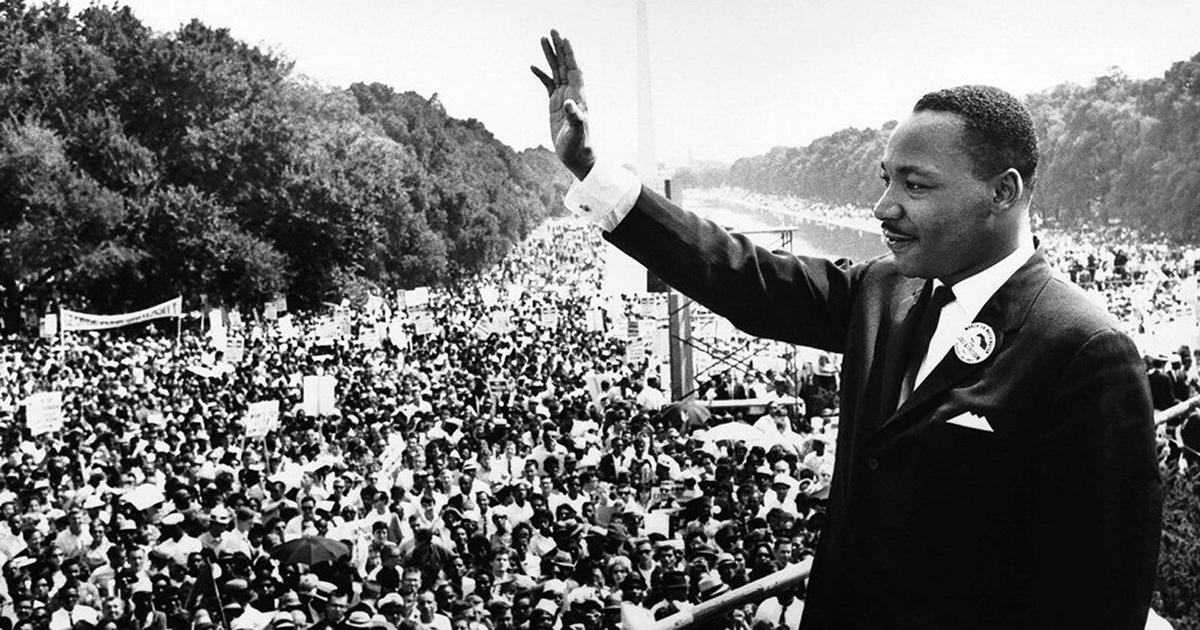
Moreover, the fight for fair wages and pay equity is far from over. Despite the gains made through legislation such as the Civil Rights Act and the Fair Labor Standards Act, wage disparities persist along racial lines. African American workers are still more likely to be employed in lowwage jobs and less likely to receive the same pay as their white counterparts for equal work.
The COVID-19 pandemic has only exacerbated these inequalities, with African Americans disproportionately affected by job losses and economic hardship. The pandemic laid bare the deepseated inequities in our society, exposing the harsh reality that for many African Americans, the American dream remains out of reach.
In honoring Dr. King’s legacy, we must recommit ourselves to the unfinished work of achieving racial and economic justice. We cannot rest until every person, regardless of race or background, has the opportunity to thrive and succeed.
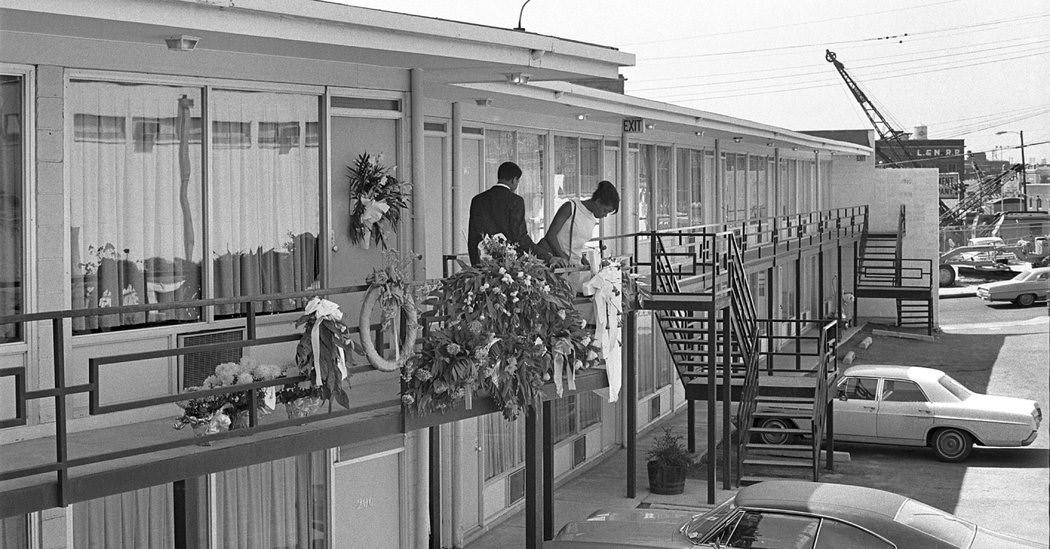
That means fighting for policies that address the root causes of inequality, from raising the minimum wage to investing in education and job training programs. It means holding corporations and employers accountable for discriminatory practices and advocating for greater transparency and accountability in the workplace.
But most importantly, it means standing together as a community and lifting each other up in the face of adversity. Dr. King understood the power of collective action, and he believed that change was possible when ordinary people came together to demand it.
As we remember Dr. King on this solemn anniversary, let us not only honor his memory but also recommit ourselves to the ideals for which he lived and died. Let us continue the march toward justice, knowing that the road ahead may be long and difficult, but guided by the spirit of hope and determination that defined Dr. King’s legacy.
In the words of Dr. King himself, “The arc of the moral universe is long, but it bends toward justice.” Let us keep bending it together, until justice truly prevails for all.
We owe it to Dr. King, to ourselves, and to future generations to keep the dream alive. Together, we march on.

Your work will shape the future. Ours will protect it.
The SCLC is unwavering in its work to have a lasting, positive impact on our communities and the people who live here. Just like we’re committed to protecting them.

We believe in equal opportunity for all regardless of race, creed, sex, age, disability, or ethnic background.
Eastern Fish Company
Sutherland’s Food Service Inc.
Robert Byrd Attorney at Law
Kent City School District
OVER $340,000 IN SCHOLARSHIP MONEY WILL BE AWARDED


The world is a little emptier after recently losing two more civil rights icons.
Naomi Ruth Barber King died March 7 at age 92, preceded by the death of her nephew, Dexter Scott King, on January 22 at the age of 62.

Mrs. King, who is known as the “Butterfly Queen” because of her love of butterflies, was a civil rights activist and the widow of Alfred Daniel (A.D.) Williams King, a leader of the Civil Rights Movement and brother of Dr. Martin Luther King Jr.
Dexter Scott King was an American civil and animal rights activist, attorney, and author. The second son of civil rights leaders Martin Luther King Jr. and Coretta Scott King, he was also the brother of Martin Luther King III, Bernice King, and Yolanda King and grandson of Alberta Williams King and Martin Luther King Sr.
He was named after the Dexter Avenue Baptist Church in Montgomery, Alabama, where his father was pastor before moving to the Ebenezer Baptist Church in Atlanta. Naomi King was the Founder and Chair Emeritus of the Board of Directors of the A.D. King Foundation, a nonviolent conflict resolution entity that promotes youth empowerment and nonviolent social change strategies as a way of life. Mrs. King was devoted to sharing her husband’s legacy and her message of love, hope, nonviolence, and youth empowerment. And she was the living example of those qualities.
Dr. Alveda King, civil rights leader and Mrs. King’s daughter, said of her mother, “Mother is flown but not forgotten. She was affectionately known as the ‘Butterfly Queen.’ I am her ‘Angel Daughter.’ Mother found peace and strength in the delicate wings of God's butterflies, just as we who know and love her found peace and strength resting beneath the wings of her lessons and love.”
Born in Dothan, Alabama, in 1931, Naomi met Rev. A.D. King and his family when, as a teenager, she and her mother joined Ebenezer Baptist Church where Rev. Martin Luther King Sr. was the pastor. They were married in 1950 and had five children: Alveda King; Alfred D.W. King III (deceased); Esther Darlene King (deceased); Reverend Derek King, and Reverend Vernon King (deceased).
Mrs. King was very close

to her nephew, Dexter Scott King, who, like his parents, Martin Luther King Jr. and Coretta Scott King, and his uncle, Rev. A.D. King, was a civil rights activist. He was seven years old when his father was assassinated, and as he got older, he was dedicated to carrying on his father’s legacy of civil rights advocacy and nonviolence.
Dr. Babs Onabanjo, President and CEO of the A.D. King Foundation, knew them both.
He said, “Dexter King was my student at Atlanta Junior College, now Atlanta Metropolitan State College. He was smart, well groomed, and respectful. Dr. Naomi King was devastated when he died. She loved Dexter so much.
“Mrs. King promotes peace, harmony, and nonviolence,” he continued. “That is a way of life for her, that is who she is, and that is the legacy that I believe she wants to leave, that she has made a difference.”
And she certainly has made a difference. The world will remember her civil rights advocacy; her gentle, loving nature; her passion to pass on the wisdom and teachings to younger generations; and her love for her family, community, and the world.
Like a butterfly coming out of its cocoon, Mrs. King, after many years of silence since her husband’s death, emerged to tell the world about her husband. In 2008, she co-founded the A.D. King Foundation to share his legacy and to carry on his life’s work and message of love, hope, and nonviolence.
Dr. Charles Steele Jr., Civil Rights Leader and National CEO/President of the Southern Christian Leadership Conference, remembers Mrs. King as “a true angel on earth working to keep the King brothers’ legacy alive. I admired her determination to travel the world to educate those who were not born when Dr. King and AD King worked to change the American South from segregation to integration, from hate to love, regardless of the color of their skin.”
Dr. Steele’s wife, Cathelean Steele, National Programs Director for the Southern Christian Leadership Conference, said, “I shall never forget Mrs. Naomi King. In 2022, she invited me to be the guest speaker at her annual gala. I look at the award that she honored me with, and it brings joy to my heart that a world-renowned leader would recognize me. I will miss you, and I will keep you in my heart and my memory.”

An author, actor, and producer, Dexter King voiced his father's 34-year-old self in the 1999 educational film, Our Friend, Martin, and portrayed his father in the 2002 television movie, The Rosa Parks Story, among other acting roles. He was the author of Growing Up King: An Intimate Memoir and producer of King Holiday and Living the Dream: A Tribute to Dr. Martin Luther King Jr.

In May 1989, at the age of 28, his mother, Coretta Scott King, named him as her successor as president of the King Center for Nonviolent Social Change.
At King’s memorial service on February 10, 2024, his sister, Bernice King, said that as a child, Dexter used to always ask “Why? Why? He was always searching for something deeper. And that was the early seeds of him becoming a very analytical, brilliant person, a strategist par excellence.”
She remembers her mother telling her and her siblings, “You don’t have to be me. You don’t have to be daddy. Just be your best self.” “And as I look at all of our lives,” she reflected, “Dexter, Martin, Yolanda, two who are no longer with us, and myself, I think we’ve done a good job of being our best selves.”
Dexter certainly heeded his mother’s advice to be his best self. At his memorial service, his wife, Leah Weber King, said, “He was the kindest, most gentle man I have ever known.”
Speaking to him, she said, “You, my love, were born a King, beautifully sculpted with the physical traits and intellect of the most revered and impactful man of our time, your beloved father. In addition to that, you held the grace, talent, and steadfastness of your beautiful mother.”
“One of the most selfless and forgiving acts of your time on this earth,” she continued, “was when you joined your mother and siblings in hearing out the individual accused of taking your father’s life, killing the dreamer.”
In 1997, 29 years after Martin Luther King Jr.'s death, Dexter met with James Earl Ray, the man imprisoned for his father's 1968 murder. King asked Ray if he killed his father, and Ray replied, "No, no I didn't." King told Ray that he and the whole King family believed he was innocent and were trying to help him.
Later, King told reporters that he did not know who killed his father but that he did not believe Ray had any role in his father's death. He brought up evidence taken from the scene, including the murder weapon, concluding that Ray would not have disposed of it near the scene of the crime.
In 1999, Dr. King’s family sued Loyd Jowers, who confessed that he had been part of a conspiracy to kill Dr. King and that James Earl Ray had been set up to take the fall.
At a 1999 press conference, King stated, “He (Loyd Jowers) named the shooter. The shooter was a Memphis Police Department Officer, Lt. Earl Clark, who he named as the killer. Beyond that, you had credible witnesses that named members of a Special Forces team who didn't have to act because the contract killer succeeded, with plausible denial, a Mafia contracted killer.”
Both Naomi and Dexter King have lived through much tragedy - the challenges of the Civil Rights Movement and the deaths of many family members. Martin Luther King Jr. and Rev. A.D. King were both murdered. Alberta Williams King, mother of MLK Jr. and AD, was fatally shot while playing the organ in her church; and Dexter’s mother, Coretta Scott King; sister, Yolanda King; and three of Mrs. King’s children all died.
In 1963, Mrs. King’s house in Birmingham, Alabama, was bombed twice. The church in Louisville, Kentucky, where A.D. was pastor was also bombed. Her husband, A.D. King, was found dead in their home swimming pool in 1969. The family believes that he was murdered.
Mrs. Naomi Ruth Barber King and Dexter King will both be remembered for their kindness and their dedication to civil rights.
Dr. Naomi Ruth Barber King, “Butterfly Queen,” coming out of the cocoon and flying home on butterfly wings, and Dexter Scott King, following in the footsteps of his parents, both paving the way for future generations.
Dexter King carried on the legacy of his parents, Coretta Scott King and Martin Luther King Jr., and his uncle, A.D. Williams King, a legacy of nonviolence and advocacy for the rights of all.
Naomi King’s legacy of love, truth, dignity, and youth empowerment continue through the A.D. King Foundation.

Congratulations to the Southern Christian Leadership Conference on 65 Years of making progress in your work towards Peace, Unity, Love, Brotherhood, and Respect.

Saluting the power of a dream and the courage of a voice.


Atlanta, GA: The vibrant city of Atlanta serves as the backdrop for the 65th Convention of the Southern Christian Leadership Conference (SCLC). Under the theme of "Economics, Education, and Gun Reform: Requirements for a Better Community," the convention brings together activists, scholars, politicians, and citizens to address pressing issues affecting communities across America.
The President/CEO of SCLC, Dr. Charles Steele, Jr, opens the convention with a clarion call to focus on economics. He highlights the stark reality of the widening wealth and income gaps between Black Americans and white Americans. Dr. Steele emphasizes that economics is not just about money but about power, opportunity, and freedom. For too long, economic disparities have been a systemic point of oppression for the poor and people of color.
"Without economic empowerment, true equality remains an elusive dream," declares Dr. Steele. "We cannot afford to overlook the structural inequalities that perpetuate poverty and marginalization in our society."
The convention delves into strategies to address economic disparities, including job creation, entrepreneurship, financial literacy programs, and equitable access to resources. Dr. Steele emphasizes the importance of education as a pathway to economic empowerment.

Education emerges as a cornerstone in the fight against poverty and injustice. Dr. Steele underscores that education is not confined to traditional academia but encompasses any institution that equips individuals with skills and knowledge to thrive in society. From apprenticeships to vocational training, education offers a pathway to economic mobility and self-sufficiency.
"We must recognize the value of education in shaping minds, transforming lives, and building brighter futures," asserts Dr. Steele. "To deny access to education is to deny opportunity and perpetuate inequality."
The convention expresses concern over attempts by some states to whitewash history by erasing Black contributions and experiences from school curricula. Dr. Steele condemns such efforts, emphasizing the importance of teaching the unvarnished truth about America's complex history. “Black Americans are America," states Dr. Steele passionately. "Our stories, struggles, and triumphs are integral to the fabric of this nation. To erase or distort our history is not only morally wrong but also intellectually dishonest."
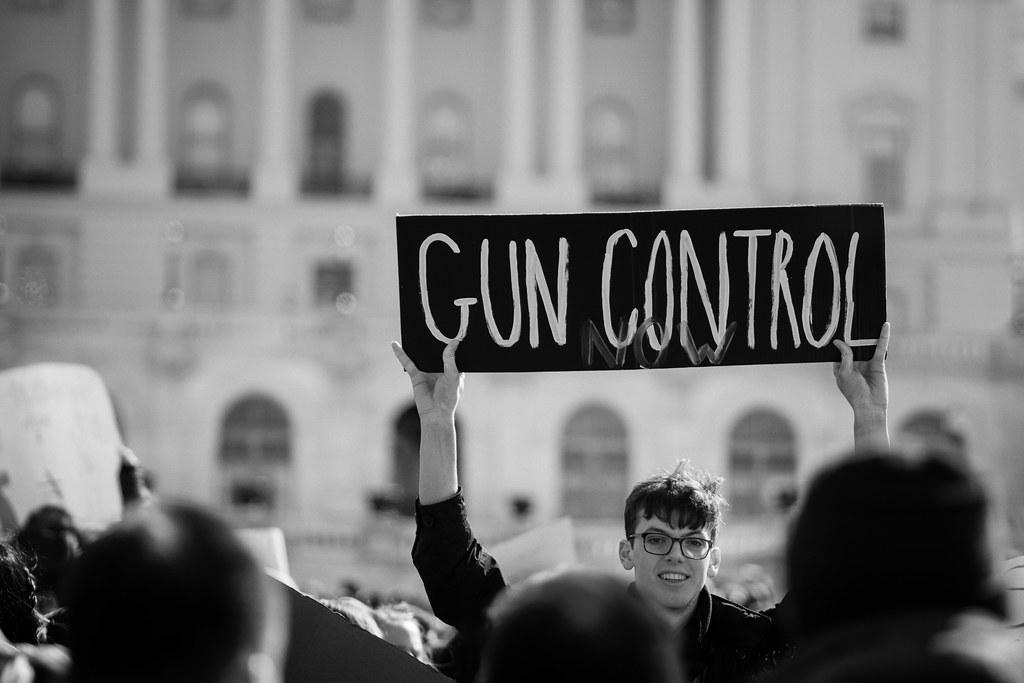
The convention confronts the epidemic of gun violence plaguing communities across America. From urban streets to suburban schools, gun-related tragedies continue to devastate families and communities. Dr. Steele invokes the legacy of Dr. Martin Luther King Jr. and the Nonviolent Principles espoused by the SCLC's founding president.
"We cannot claim to honor Dr. King's legacy while tolerating a culture of violence," declares Dr. Steele. "True progress requires a commitment to nonviolence in thought, word, and deed."
While advocating for a world free from violence, Dr. Steele acknowledges the reality of gun ownership in America. He emphasizes the need for responsible gun ownership and sensible gun reform legislation informed by law enforcement and the voices of affected families.
"As we pursue gun reform, let us prioritize the safety and well-being of our communities over politics and ideology," urges Dr. Steele. "We owe it to future generations to build a society where every person can live without fear of gun violence."
As the convention draws to a close, Dr. Steele reflects on the significance of the SCLC's 65-year journey. While proud of the organization's history and accomplishments, he underscores the urgency of the challenges that lie ahead.
"Sixty-five years of convention should be a celebration, but there is too much at stake to simply have a party," remarks Dr. Steele. "As we honor our past, let us remain steadfast in our commitment to building a better future for all."
In the spirit of solidarity and determination, the 65th Convention of the Southern Christian Leadership Conference concludes, leaving attendees inspired and empowered to continue the fight for justice, equality, and a brighter tomorrow.
Join the Movement: To learn more about the Southern Christian Leadership Conference and how you can support its mission, visit nationalsclc.org.
Note: The opinions expressed in this magazine are those of the individuals quoted and do not necessarily reflect the views of the Southern Christian Leadership Conference.







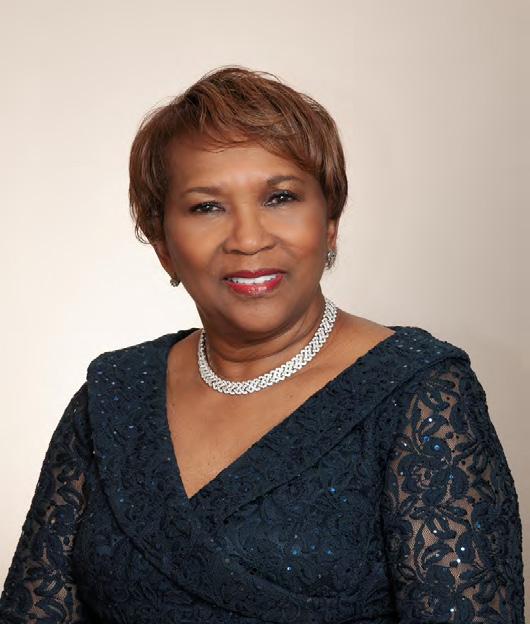



At Comerica Bank, we believe when everyone has an equal opportunity to thrive, we all thrive.
That’s why we invest time, resources and capital into creating economic opportunities that help build stronger communities.
From a ordable housing to financial education and workforce development, Comerica is committed to helping everyone … succeed.
In the landscape of American democracy, the right to vote stands as the cornerstone of participation and representation. Yet, despite decades of progress, the African American vote continues to face systematic barriers and suppression tactics. At the heart of this issue lies the gutting of key provisions of the Voting Rights Act, namely Section 4 and Section 5, which has catalyzed a resurgence of discriminatory practices and disenfranchisement efforts.
The Voting Rights Act of 1965 was a landmark piece of legislation aimed at dismantling discriminatory voting practices that disenfranchised African Americans. Sections 4 and 5 were particularly crucial, requiring certain states and localities with a history of voter discrimination to seek federal approval before making changes to their voting laws. This preclearance mechanism acted as a vital safeguard against new forms of suppression tactics.

However, in 2013, the United States Supreme Court dealt a severe blow to the Voting Rights Act in Shelby County v. Holder, effectively neutering the preclearance requirement by striking down Section 4. The court argued that the formula used to determine which jurisdictions were subject to preclearance was outdated and no longer reflective of current conditions. As a result, without the protection of preclearance, many states swiftly implemented restrictive voting laws, disproportionately affecting minority communities.

The consequences of this decision were immediate and far-reaching. Across the country, states rushed to enact voter identification laws, reduce early voting periods, and implement voter purges—all of
which disproportionately impacted African American voters. Moreover, without the oversight provided by preclearance, these measures often went unchallenged until after they had already disenfranchised countless individuals.
Furthermore, the void left by the gutting of the Voting Rights Act has allowed for the proliferation of subtle but insidious tactics aimed at suppressing the African American vote. Gerrymandering, for instance, has been used to dilute the voting power of minority communities by redrawing district lines to favor certain political parties. Additionally, polling place closures and changes in voting procedures have created confusion and barriers to access, particularly in low-income and minority neighborhoods.
In tandem with these legal challenges, there has been a surge in disinformation campaigns targeting African American voters. Misleading information about voter registration requirements, polling locations, and eligibility criteria circulates widely, often through social media platforms. These campaigns prey on vulnerabilities within marginalized communities, sowing seeds of doubt and discouragement regarding the electoral process.

Gallagher is a trusted insurance, risk management, and consulting partner committed to driving an inclusive workplace and a more diverse industry for the benefit of our clients, employees, and communities.

However, in the face of these daunting obstacles, the legacy of the civil rights movement continues to inspire resilience and activism. The annual commemoration of the Selma to Montgomery March and the historic Bloody Sunday serves as a poignant reminder of the sacrifices made in the fight for voting rights. Organizations like the Southern Christian Leadership Conference (SCLC), founded by Dr. Martin Luther King Jr., refuse to remain passive in the face of renewed attacks on voting rights.
The SCLC, alongside other civil rights groups and grassroots organizations, has mobilized efforts to combat voter suppression through education, advocacy, and direct action. Voter registration drives, community outreach initiatives, and legal advocacy have become essential tools in the ongoing struggle for equal access to the ballot box. By empowering individuals with knowledge and resources, these efforts seek to counteract the disenfranchisement tactics aimed at African American communities.
Moreover, the SCLC and its allies are actively working to hold elected officials and
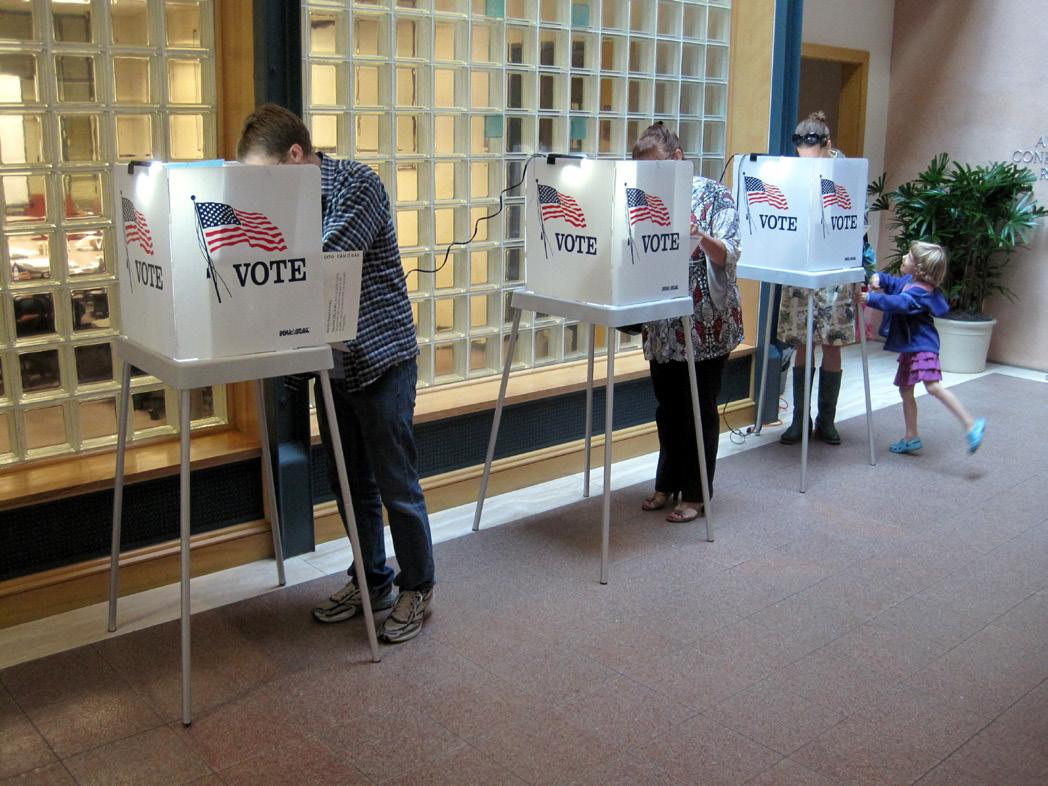
policymakers accountable for upholding the principles of democracy and protecting voting rights for all citizens. Through litigation and legislative advocacy, they seek to challenge discriminatory voting laws and push for the restoration of key provisions of the Voting Rights Act. Additionally, they are leveraging public awareness and grassroots organizing to build coalitions and mobilize support for voting rights reform.
In conclusion, the gutting of Section 4 and Section 5 of the Voting Rights Act has unleashed a wave of voter suppression targeting African American communities. From legal challenges to disinformation campaigns, the obstacles to full and equal participation in the electoral process are manifold. However, in the spirit of resilience and determination exemplified by the civil rights movement, organizations like the Southern Christian Leadership Conference are leading the charge to defend voting rights and ensure that every voice is heard. As we honor the legacy of those who fought for the right to vote, we must remain steadfast in our commitment to safeguarding democracy for future generations.
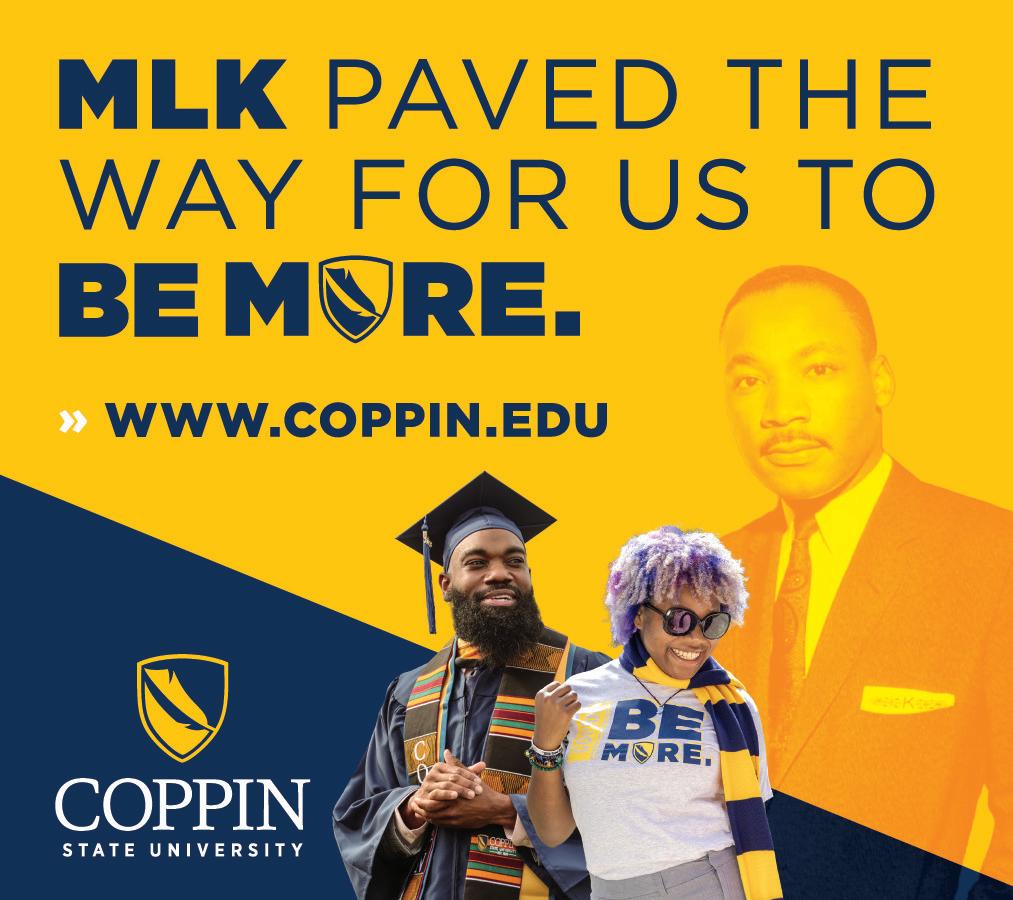
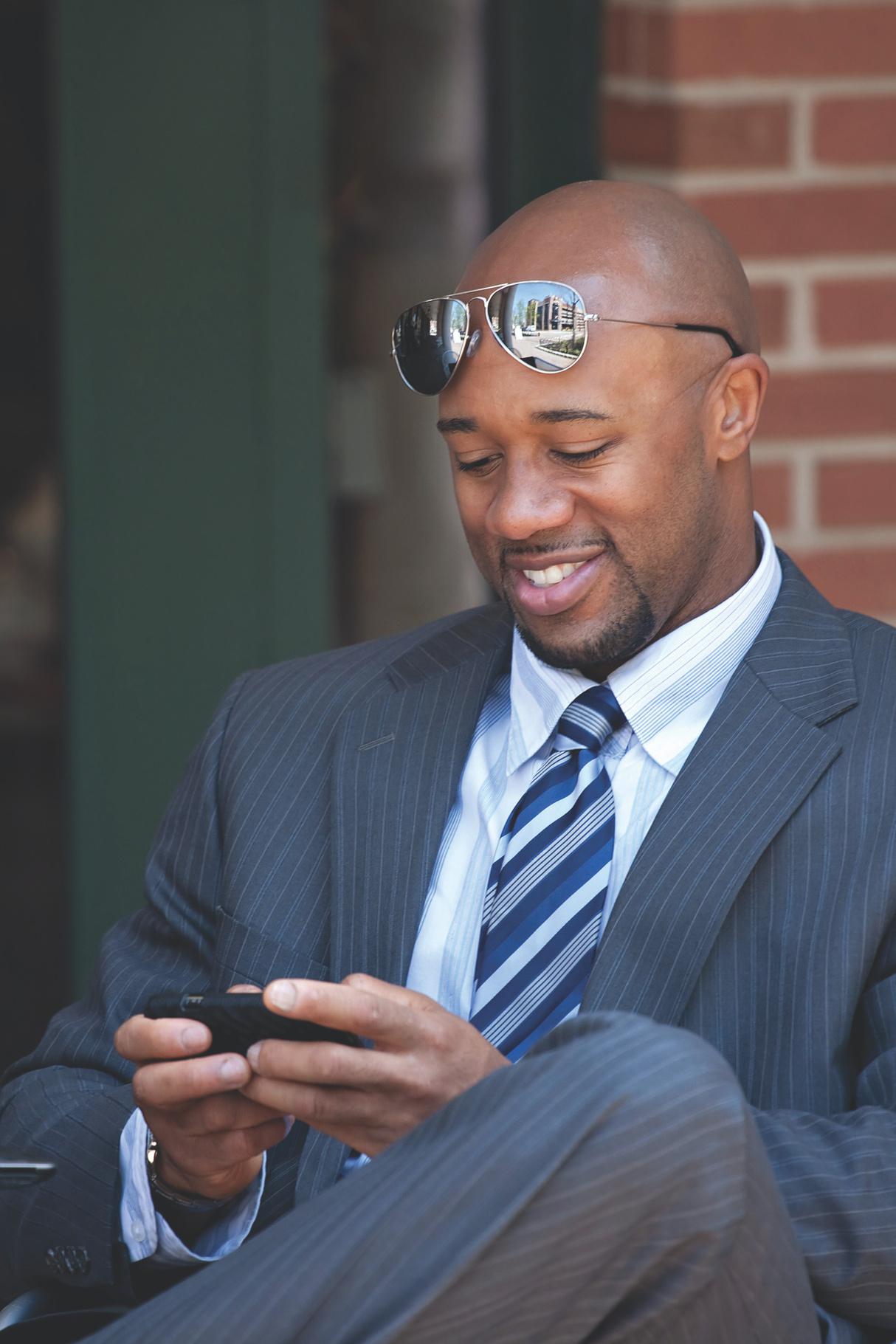
We turn hard work into smart work.
We put an expert in your pocket with tools that help you get organized, cut through paperwork, and stay on top of your business. Solutions that save you time and money all in the palm of your hand. Find your answers at fedex.com.
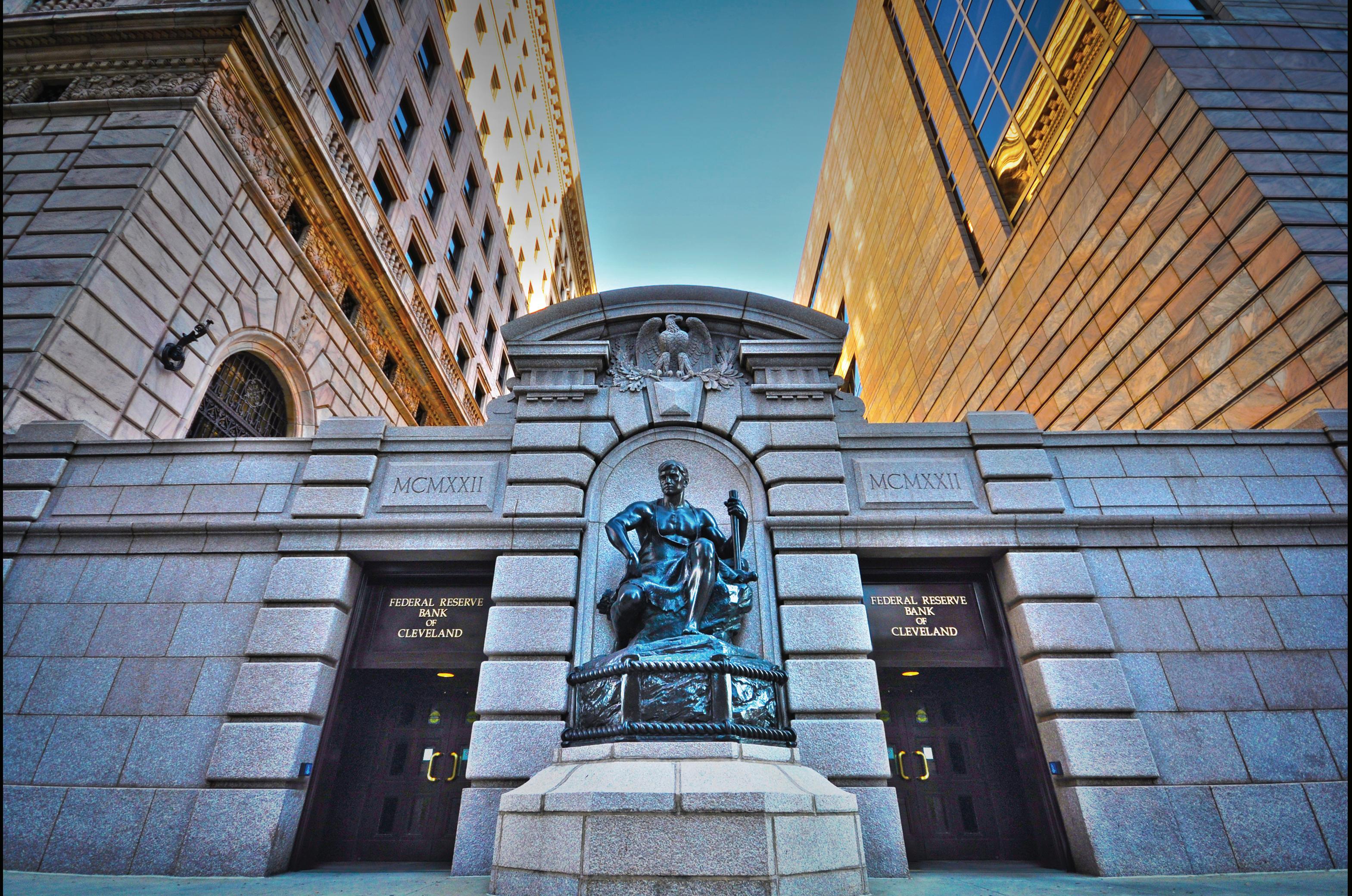
mission with passion, dedication, and commitment to service.
orientation and gender identity, overcoming life challenges, parenting, and more
•Professional mentoring relationships
•Options for flexible schedules
•Generous paid time off program plus 11 paid federal holidays
•Medical, dental, prescription, and vision insurance coverage for you and your dependents
•Tuition reimbursement, training, and other professional development opportunities
